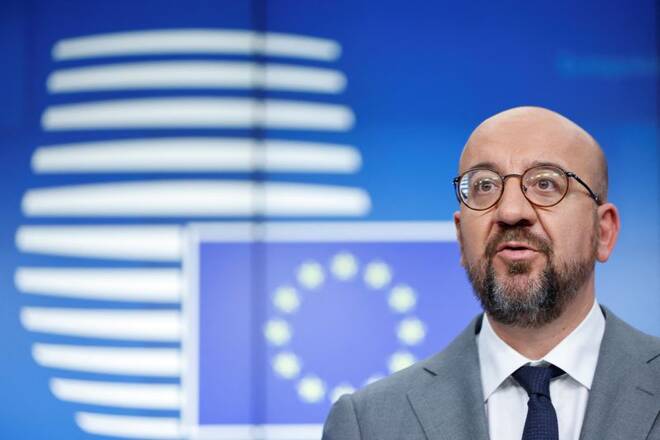Advertisement
Advertisement
EU cautious on Russia gold ban, oil price cap – Michel
By:
By Philip Blenkinsop SCHLOSS ELMAU, Germany (Reuters) -The European Union gave a cautious response on Sunday to plans by fellow G7 members to ban imports of Russian gold, and said it needed more certainty before signing up to a U.S. initiative to cap the price of Russian oil.
By Philip Blenkinsop
SCHLOSS ELMAU, Germany (Reuters) -The European Union gave a cautious response on Sunday to plans by fellow G7 members to ban imports of Russian gold, and said it needed more certainty before signing up to a U.S. initiative to cap the price of Russian oil.
G7 leaders met in southern Germany for a three-day summit from Sunday designed to show their united response to Russia’s invasion of Ukraine four months ago.
European Council President Charles Michel was cautious about a plan from Britain, United States, Japan and Canada to ban imports of newly mined or refined Russian gold.
“On gold, we are ready to go more into the details and to look if it’s possible to target gold in a manner that would target the Russian economy and not in a manner that would target ourselves,” Michel, who chairs EU summits, told a news conference as G7 leaders arrived.
The EU, which plans to ban imports of most Russian oil from the end of the year, also has reservations about a U.S. push for a broad oil price cap or “price exception” to restrict Moscow’s energy revenue.
A price exception could work through a mechanism to restrict or ban insurance or financing for Russian oil shipments above a certain amount. It could prevent spillover effects to low income countries that are struggling with high food and energy costs.
Michel said G7 leaders would discuss a technical mechanism that had the effect of an oil price cap through services related to oil and export insurance.
“I’m careful and cautious, we are ready to go into the details. We are ready to take a decision together with our partners, but we want to make sure that what we decide will have a negative effect (on Russia) and not a negative effect for ourselves,” Michel said.
(Reporting by Philip Blenkinsop and Thomas Escritt; editing by Matthias Williams and Jane Merriman)
About the Author
Reuterscontributor
Reuters, the news and media division of Thomson Reuters, is the world’s largest international multimedia news provider reaching more than one billion people every day. Reuters provides trusted business, financial, national, and international news to professionals via Thomson Reuters desktops, the world's media organizations, and directly to consumers at Reuters.com and via Reuters TV. Learn more about Thomson Reuters products:
Did you find this article useful?
Latest news and analysis
Advertisement
